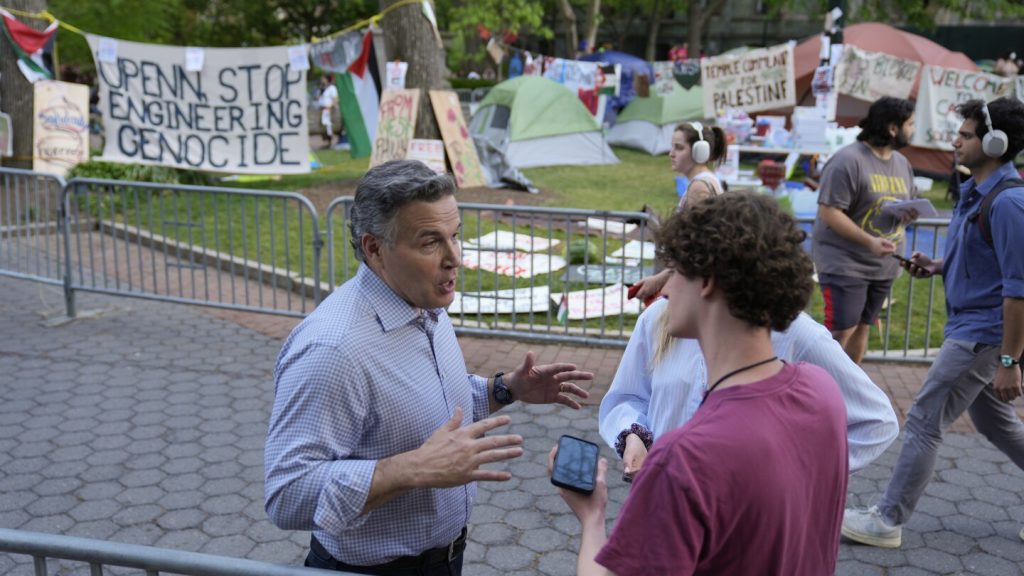Student protests over the war in Gaza are not only impacting university campuses but also Senate races across the nation. Democrats are navigating a delicate internal divide over opposition to President Joe Biden’s handling of the Israel-Hamas conflict, while Republicans are seizing on the protests to criticize their rivals. Senate contests in Pennsylvania, Nevada, Ohio, and Michigan have been particularly affected by the protests, with tent encampments appearing on college campuses and police crackdowns following in some instances.
Republican candidates, such as Rick Scott in Florida and David McCormick in Pennsylvania, have used the protests to highlight what they perceive as a lack of leadership and moral clarity from their Democratic opponents and President Biden. While some Republicans have shown support for Jewish students at protest encampments, others have criticized the protesters for creating a hostile environment and resorting to antisemitic rhetoric. The protests have stirred up campaign rhetoric and increased tensions in states with pivotal Senate races, generating discussions around leadership and moral courage among politicians and university administrators.
Concerns about antisemitism have been at the forefront of the protests, with Israel and its supporters accusing the demonstrators of being antisemitic. However, protest organizers argue that the movement is aimed at saving the lives of Palestinian civilians and promoting peaceful activism. Democrats have been cautious in their responses to the protests, balancing criticism of antisemitism and lawlessness with the support of free expression and peaceful protest. The protests have highlighted divisions within the Democratic Party, particularly between pro-Israeli and pro-Palestinian factions.
Republicans have condemned what they perceive as equivocation or silence from Democrats regarding the protests. They have expressed solidarity with Jewish communities against antisemitism while criticizing the demonstrations as lawless and sympathetic to organizations like Hamas. Some Republican candidates have used the protests as a political tool in their campaigns, linking them to issues like student loan forgiveness and calling for consequences for universities that tolerate antisemitism. Despite bipartisan condemnation of antisemitism and violence, Democrats and Republicans have taken different approaches in addressing the student protests.
The impact of the protests on Senate races in states like Michigan and Ohio, where the Israeli-Palestinian conflict resonates strongly with voters, is significant. Candidates from both parties are jockeying for position, with Republicans highlighting Democrats’ perceived failure to condemn the protests forcefully and Democrats emphasizing the need to address antisemitism and protect the rights of peaceful protesters. The protests have prompted a broader conversation about free speech, campus activism, and the role of universities in facilitating political discourse. As the demonstrations continue to unfold, the political implications for the upcoming elections remain uncertain.















